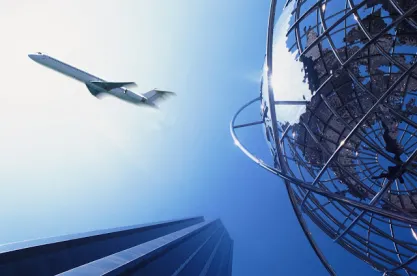The beginning of the year brought the arrival of "Implementation Day" under the Joint Comprehensive Plan of Action (JCPOA) and its potential for business opportunities in Iran that had been shut off for decades (See Jan. 22, 2016 Katten/RTL Aviation Advisory, ""Implementation Day" Brings Openings for Commercial Aircraft Sales With Iran"). Since that time, actual opportunities under this program have been slow to develop and subject to intense scrutiny.
However, a breakthrough of sorts emerged on September 21, when the US company, Boeing Co., and the European firm, Airbus SAS, each reported that they received licenses from the US Office of Foreign Assets Control (OFAC), allowing them to proceed with sales and leases of commercial aircraft to state-owned Iran Air. With these licenses, both companies take important steps forward in thawing the freeze in the commercial aircraft market in Iran.
The commercial aviation industry was uniquely positioned to benefit from the trade restrictions that were lifted on Implementation Day. The JCPOA included a specific commitment by the United States to allow for the sale of commercial passenger aircraft to Iran by licensing their export and the provision of certain related services to Iran. On Implementation Day, OFAC issued a Statement of Licensing Policy establishing "favorable" treatment for license applications for sales of commercial passenger aircraft to Iran. Even though many sanctions against Iran remain in place, these actions were expected to open a multi-billion dollar market in desperate need of overhauling its aging fleet of commercial aircraft to US companies.
Efforts to capitalize on the new market proceeded quickly at first, with high-profile entities jumping to take advantage of the new opportunities. Soon after Implementation Day, Airbus announced that it had reached an agreement with Iran Air for the sale and lease of up to 118 aircraft, a deal valued at approximately $27 billion. This was followed in June with a provisional agreement between Iran Air and Boeing for the sale and lease of an additional 109 aircraft, a deal worth roughly $20 billion.
Both of these deals were contingent on obtaining the necessary licenses from OFAC authorizing the transactions. The scope of OFAC's jurisdiction is expansive, and includes both US persons and foreign persons dealing with US origin goods. Boeing's negotiations with Iran were delayed due to the uncertainty that Boeing—as a US entity—faced over whether even discussing terms of an agreement with Iran constituted "facilitating" a transaction that would have been prohibited without its own license. While Airbus was not necessarily restrained in the same way, most Airbus aircraft incorporate more than the 10 percent threshold US-origin components, so its aircraft in the deal also are subject to OFAC's prohibitions under the US-Iranian sanctions regime.
These aircraft deals have become high-stakes test cases to gauge the temperature of how business deals with Iran could be organized, structured, and financed in a post-JCPOA environment. Both deals faced scrutiny from the US Treasury Department and from conservative groups who were opposed to the nuclear agreement with Iran. The Boeing deal, in particular, drew negative feedback from Capitol Hill. In July, the US House Financial Services Committee introduced amendments into the 2017 appropriations bill that would have prohibited the use of any funds for OFAC to issue licenses or authorize transactions involving exports of commercial aircraft to Iran. Committee reports made clear that the amendments were brought in part to put a hold on Boeing's provisional agreement, as there were concerns raised about whether aircraft included in the deal could be used for military purposes, including for the transport of troops or weapons into Syria.
In recent weeks, Iran had been expressing indignation at the slow pace of OFAC's licensing process. At a CAPA Aviation Finance conference in Tehran on September 18, Iran's Roads and Urban Development Minister Abbas Ahmad Akhoundi criticized what he saw were unfair delays by the United States in holding up the licenses for the aircraft deals. Iran reportedly held to its commitments concerning the diversion and stockpiling of nuclear material outlined in the JCPOA, and the International Atomic Energy Association, which monitors Iran's commitments to the nuclear deal, has not reported any diversions to date. The delays in the licensing process, compounded by delays in arranging the necessary financing from European banks, raised concerns that the Airbus and Boeing deals may have to be renegotiated or reduced in scale. However, Minister Akhoundi also expressed optimism that OFAC would issue the necessary licenses "soon."
The minister's predictions proved to be accurate, as OFAC's licenses to Airbus and Boeing were granted on September 21. The license to Boeing reportedly covers the sale of 80 planes, including 46 single-aisle 737s, four 747s, and 30 wide-body 777s. Meanwhile, Airbus reported that its license from OFAC authorizes the sale of 17 single-aisle passenger aircraft to Iran Air. Both licenses contain explicit conditions to ensure that the aircraft involved in the transactions are used solely for commercial purposes. A second license application from Airbus for the remainder of the planes in its deal, including its "superjumbo" A380 aircraft, is still under review at OFAC, as is a license application from turboprop manufacturer ATR, who has a pending deal with Iran for roughly 40 of its planes.
Implementation Day under the JCPOA rightfully raised many hopes that the US commercial aviation industry could begin to do business with a market that had been long sealed off and was in need of their products and services. Subsequent months have shown that, even with the relaxing of US sanctions under the JCPOA, the road to doing business with Iran is still complex and riddled with possible compliance faults. The license applications by Airbus and Boeing underwent months of intense scrutiny before being approved by OFAC, and ATR's license application is still under OFAC review. Even with OFAC approval, there are many other components of the deal that will still require careful navigation around sanctions and prohibitions that continue to exist, including handling financing arrangements without involving US dollars or the US financial system, both of which are still restricted activities.
For now, a key question ahead is whether the months-long timeframe for OFAC to license Boeing and Airbus's transactions served as "brush-clearing" for future transactions to be handled more expediently, or whether it will be representative of how all such transactions will be scrutinized. While those looking to engage with Iran in commercial aircraft deals can hope for the former, they should prepare for the latter, in part by making sure that any OFAC license applications are accurate and comprehensive in their scope and coverage of the potential transaction.





 />i
/>i
